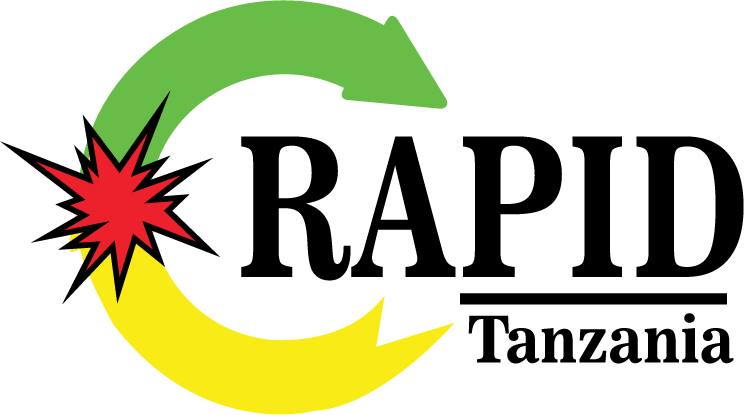Our Projects

2024 - DRR training in school- Pilot project on Educating Students on Climate Change and Disaster Management project in Dar es salaam.
The “Educating Students on Climate Change and Disaster Management Pilot Project Program” was implemented by RAPID Tanzania in Mtambani School and Kibonde Maji Primary School in Dar es Salaam, Tanzania, from 1st October to 31st November 2024. The project aimed to equip students, teachers, and local communities with the necessary knowledge and skills for disaster risk reduction (DRR), climate change adaptation, and hygiene practices. The program combined theoretical education with practical applications, ensuring participants gained knowledge and were prepared to act in real-world disaster situations.
Key activities included disaster preparedness lessons, risk assessment exercises, and climate change awareness workshops. Both schools engaged in disaster simulations, including fire safety drills and emergency evacuation procedures, to enhance readiness for local hazards such as floods, fires, and earthquakes. In addition, students participated in mapping disaster risks in their school environments, providing them with a hands-on understanding of safety.
Critical infrastructure improvements were made to strengthen safety measures further. Mtambani School’s drainage trenches were cleaned to reduce flood risks, and five fire extinguishers and one fire blanket were provided to each school, significantly improving fire safety. Hygiene was also prioritized, with 20 liters of liquid soap and essential cleaning tools—such as five hoes and shovels supplied to both schools. Building an integrated waste management facility promoted sustainable practices, including recycling and waste reduction. To ensure the sustainability of the program’s impact, training was delivered to both school staff and students. This training focused on fire safety, disaster preparedness, and hygiene best practices, ensuring that both schools have the knowledge and resources to manage emergencies long after the project’s completion.
The pilot project has significantly improved disaster preparedness, environmental conservation, and hygiene standards within the school communities. The intervention has empowered students and teachers and enhanced community engagement in disaster risk management. The project’s aforementioned success serves as a model for expansion to additional schools in Dar es Salaam and other regions, contributing to a more resilient and climate-aware generation.
